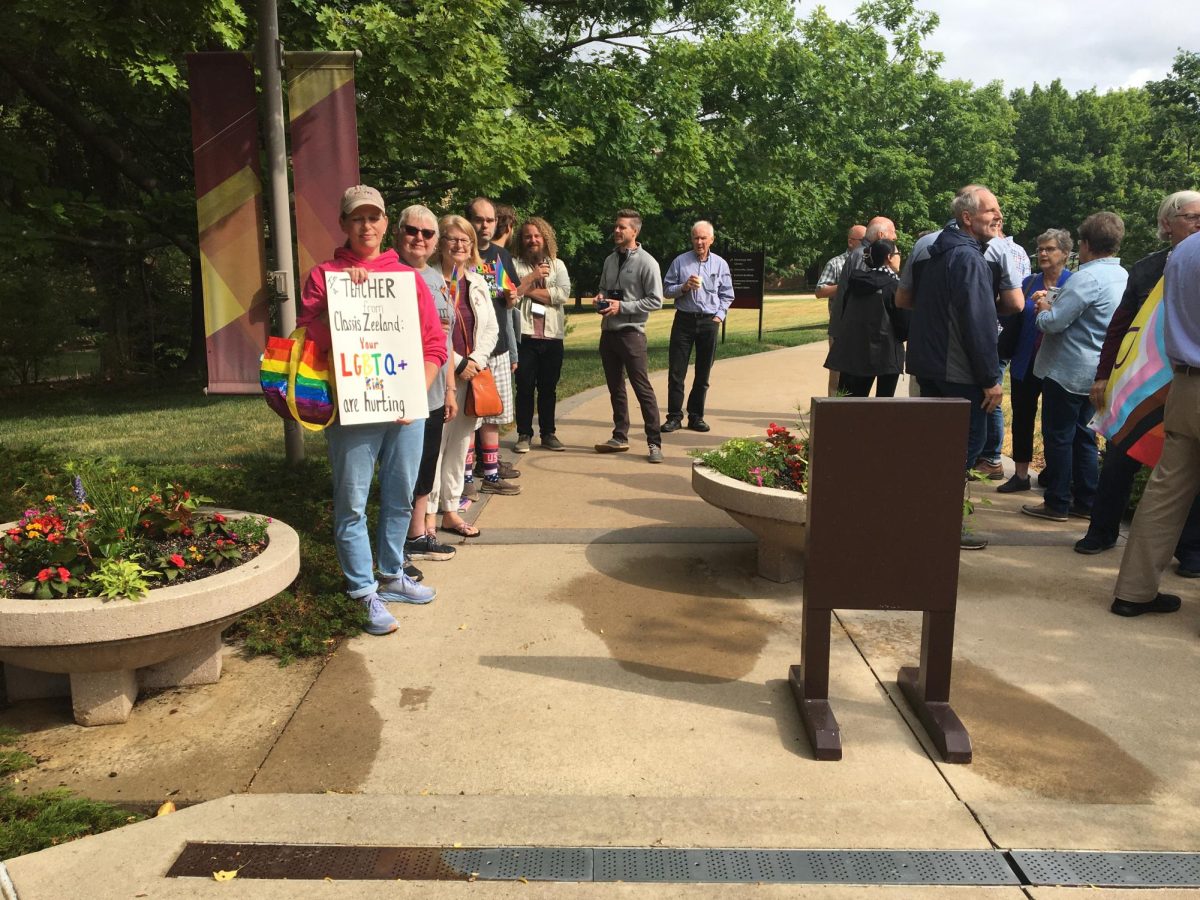After 146 days on strike, the Writer’s Guild of America (WGA) has come to an agreement with studio executives.
The strike, which is the longest in WGA history, started on May 2 in response to how streaming has affected the industry. The Screen Actors Guild (SAG) went on strike on July 14 for similar reasons and remains on strike; this was the first time the WGA and SAG have been on strike together since 1960.
In one of their announcements, WGA describes the problem as film studios “limiting writers in a writers room, creating less jobs and more work for writers involved as well as decreased pay for projects once they are put onto streaming.” The guild is also concerned with the potential effect of AI on their business model.
The use of AI to create content is of particular concern to those on strike. Greg Braun, adjunct professor of advertising and director of the Masters of Arts and Strategic Communication student media agency at Calvin, believes the debate is “going to be ongoing.” It will be a constant process of asking questions and deciding who owns what, Braun explained. “Does Star Wars/Disney own Luke Skywalker or does Mark Hamil own Luke Skywalker? Or is it somewhere in between?” Braun questioned.
“It’s a bit of an unknown, isn’t it? The agreement is a tentative agreement. We don’t have full transparency, but obviously AI threatens their entire livelihood. We can’t put it back in the bottle as much as we might want to,” Braun said. The agreement reached by the WGA negotiation board aims to clarify a lot of these questions.
According to an official update from the WGA negotiation board,“this deal is exceptional — with meaningful gains and protections for writers in every sector.” Protections include increased pay and staffing for streaming service programs, as well as guidelines for the use of AI in script writing. The update said the board is excited to share what the specifics of the agreement are, but “cannot do that until the last ‘i’ is dotted” as a protective measure for what they are working towards.
Braun said that watching the strike has been interesting because “it has fundamentally affected different stakeholders.” Stakeholders are groups like at-home audiences, advertisers and large entertainment entities like Disney, Warner Brothers and Netflix. Braun emphasized the importance of the rights of writers and actors, but also the damage that these changes are going to have on the entertainment industry as we know it. “There’s going to be a lot of fallout that will take a long time to recover,” Braun said.
According to the New York Times, the strike of both writers and actors –– leading to the subsequent shutdown of Hollywood –– has lost the Californian economy roughly $5 million dollars. Most studios have taken a hit as well. Warner Bros reported that their yearly earnings would be reduced from $500 million to $300 million. Most major studios like Warner Bros, Disney and Paramount Global have taken hits in stock prices as well.
Workers of Hollywood –– such as makeup artists, directors, set designers and many others –– are also feeling the financial strain of the strike, having been without work since the start of the strike.
Despite the hardships ahead, the WGA is back at work under the banner of “146 days stronger,” seeing this as a beginning to holding mega corporations accountable and fighting the exploitation of workers.
Braun encourages students who are interested in the entertainment industry to be involved. “As future leaders of the business, they are responsible for maintaining the ethical standards.” Braun said “[Students] are the future leaders of media, so they are responsible for raising their hands and getting involved.”





